Filter by
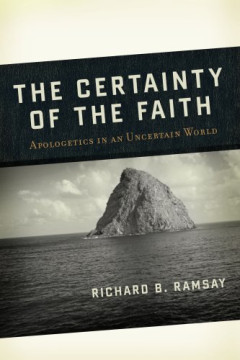
Certainty of the Faith: Apologetics in an Uncertain World
This book gives Christians greater confidence in their beliefs and tools to defend their faith in dialogue with postmodern man. It exposes the uncertainty of non-Christian thought, analyzes some of the best arguments of Christian apologists, and suggests answers to the most difficult questions we face.
- Edition
- -
- ISBN/ISSN
- 9781596380653
- Collation
- Softcover; 296 hlm.; 13.5 x 21.5 cm
- Series Title
- -
- Call Number
- 239
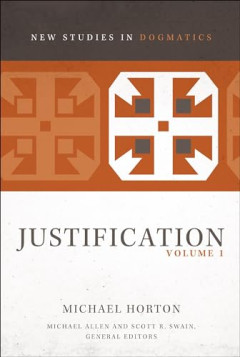
New Studies in Dogmatics: Justification, Vol. 1
The first of a two-volume project delving into the doctrine of justification. Michael Horton seeks not simply to recover a clear message of its role in modern Reformed theology, but also to bring a fresh discovery of the gospel in a time when contemporary debates around justification have reignited. The doctrine of justification stands at the center of our systematic reflection on the meanin…
- Edition
- 1
- ISBN/ISSN
- 9780310491606
- Collation
- 99 hlm. ; 23 cm
- Series Title
- New Studies in Dogmatics
- Call Number
- 234.7
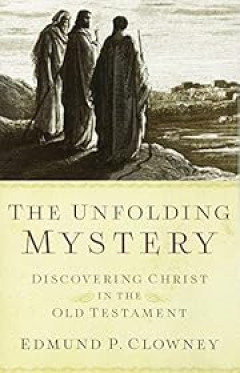
The Unfolding Mystery: Discovering Christ in the Old Testament
Beginning with Adam and Eve and closing with the last of the prophets, Dr. Clowney takes a fascinating walk through the Old Testament, revealing Christ in places where he is usually overlooked.
- Edition
- 2
- ISBN/ISSN
- 9781596388925
- Collation
- Softcover; 220 hlm.; 14 x 21.5 cm
- Series Title
- -
- Call Number
- 232.12
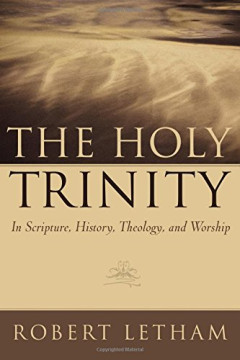
The Holy Trinity: In Scripture, History, Theology, and Worship
In "The Holy Trinity" Robert Letham helps to redress this shortcoming. He offers a well-researched volume about "the One who is utterly transcendent and incomprehensible." After examining the doctrine's biblical foundations, the author traces its historical development through the twentieth century, and engages four critical issues : the Trinity and (1) the incarnation, (2) worship and prayer…
- Edition
- -
- ISBN/ISSN
- 9780875520001 / 0875520006
- Collation
- Softcover; 567 hlm.; 15 x 22.7 cm
- Series Title
- -
- Call Number
- 231.044
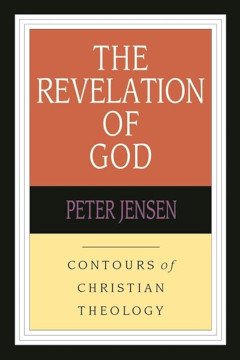
The Revelation of God: Contours of Christian Theology
"~In modern times the Christian faith's claim to possess a unique revelation of God has faced numerous challenges. A central issue has been the role of the Bible. While some have continued to defend the view that the Bible, inspired by God, is God's self-revelation in a direct way, others, have argued that God's self-revelation is to be found primarily in divine action or in the person of Jesus…
- Edition
- -
- ISBN/ISSN
- 9780830815388
- Collation
- Softcover, 304 hlm, 15x23cm
- Series Title
- -
- Call Number
- 231.74
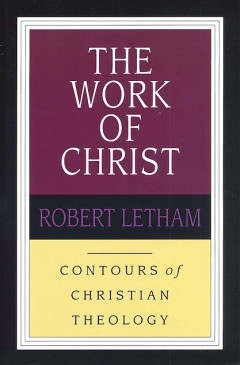
The Work of Christ: Contours of Christian Theology
In The Work of Christ Robert Letham shapes his discussion around the threefold office of Christ as prophet, priest and king. Within this framework he explores the issues of Christ and the Word of God, the nature and theories of the atonement, and the cosmic and corporate dimensions of the mediatorial kingship of Christ. At crucial points the viewpoints of significant Christian thinkers, from th…
- Edition
- -
- ISBN/ISSN
- 9780830815326
- Collation
- Softcover, 246 hlm, 15x23cm
- Series Title
- -
- Call Number
- 232.8
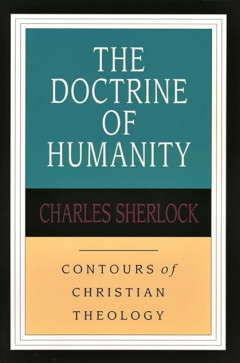
The Doctrine of Humanity: Contours of Christian Theology
"~At the end of the twentieth century the forces of race, gender, ethnicity, culture, social status, life-style and sexual preference threaten to disassemble any notion of universal ""human nature"" or ""human condition."" In light of this historical moment, the Christian doctrine of human nature is ripe for rethinking and reformulation.Charles Sherlock sees this theological task as demanding a…
- Edition
- -
- ISBN/ISSN
- 9780830815357
- Collation
- Softcover, 303 hlm, 15x23cm
- Series Title
- -
- Call Number
- 233.5
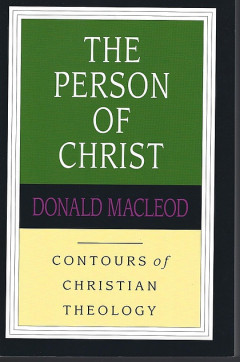
The Person of Christ: Contours of Christian Theology
Throughout the history of the church the doctrine of the person of Christ has been a centerpiece of theological reflection. In The Person of Christ Donald Macleod rearticulates this multifaceted doctrine. He begins with the New Testament and recent attempts to understand its Christology. Macleod then turns his attention to Christ in the history of Christian theology, examining the principal iss…
- Edition
- -
- ISBN/ISSN
- 9780830815371
- Collation
- Softcover, 303 hlm, 15x23cm
- Series Title
- -
- Call Number
- 232.8
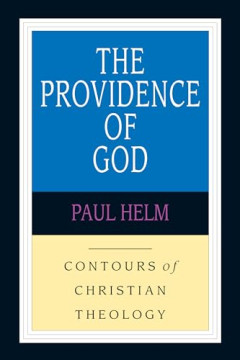
The Providence of God: Contours of Christian Theology
In this concise and accessible introduction, Paul Helm outlines for students and interested readers the doctrine of divine providence. Unlike many doctrinal treatments, his approach is not historically oriented. Instead Helm focuses on the underlying metaphysical and moral aspects of God's providence, paying particular attention to the ideas of divine control, providence and evil, and the role …
- Edition
- -
- ISBN/ISSN
- 9780830815333
- Collation
- Softcover, 246 hlm, 15x23cm
- Series Title
- -
- Call Number
- 231.5
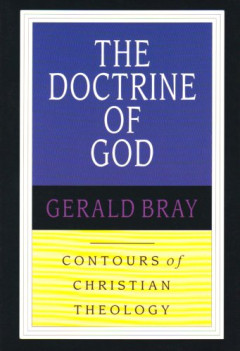
The Doctrine of God: Contours of Christian Theology
What is theology? What is the nature of God? How should we think about the relationships among the persons of the Trinity? In a carefully reasoned style Gerald Bray distills the essence of these questions and introduces readers to a theological understanding of the personal, trinitarian existence of God. Engaging classical and contemporary theology along the way, Bray also leads us into convers…
- Edition
- -
- ISBN/ISSN
- 9780830815319
- Collation
- Softcover, 281 hlm, 15x23cm
- Series Title
- -
- Call Number
- 231
 Computer Science, Information & General Works
Computer Science, Information & General Works  Philosophy & Psychology
Philosophy & Psychology  Religion
Religion  Social Sciences
Social Sciences  Language
Language  Pure Science
Pure Science  Applied Sciences
Applied Sciences  Art & Recreation
Art & Recreation  Literature
Literature  History & Geography
History & Geography